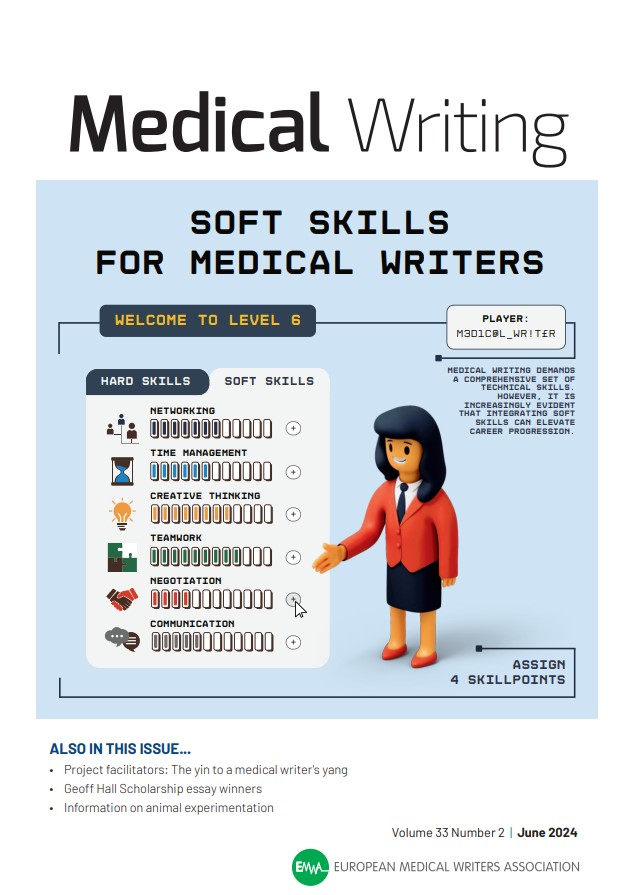
Volume 33, Issue 2 - Soft Skills for Medical Writers
The hard truth about soft skills in medical writing
Author: Corinne Swainger
Abstract
Historically, hard skills – such as technical, digital, or life sciences qualifications – have been seen as more valuable than soft skills in successful medical writing. However, hiring managers now recognise soft skills as one of the top educational needs in medical communications. Although the use of artificial intelligence (AI) is also emerging as a key medical communications tool, there are some things AI simply cannot do. That’s where soft skills, like teamwork, adaptability, and leadership, come in. This article reviews the essential soft skills you now need as a professional medical writer, and how you can optimise them for your career.
Medical Writing. 2024;33(2):24–6. https://doi.org/10.56012/kmhj6459
 Download the full article
Download the full article
Search
Articles
Links
Editoral Board
Editor-in-Chief
Co-Editors
Senior Editor
Victoria White
Managing Editor
Alicia Brooks Waltman
Associate Editors
Section Editors
AI/Automation
Biotechnology
Digital Communication
EMWA News
Freelancing
Gained in Translation
Getting Your Foot in the Door
Good Writing Practice
Pablo Izquierdo / Alison McIntosh
In the Bookstores
Publications
Medical Communications/Writing for Patients
Medical Devices
My First Medical Writing
News from the EMA
Pharmacovigilance
Regulatory Matters
Regulatory Public Disclosure
Louisa Ludwig-Begall / Sarah Kabani
The Crofter: Sustainable Communications
Veterinary Writing
Editors Emeritus
Layout Designer
Chris Monk
 Visit the EMWA website
Visit the EMWA website